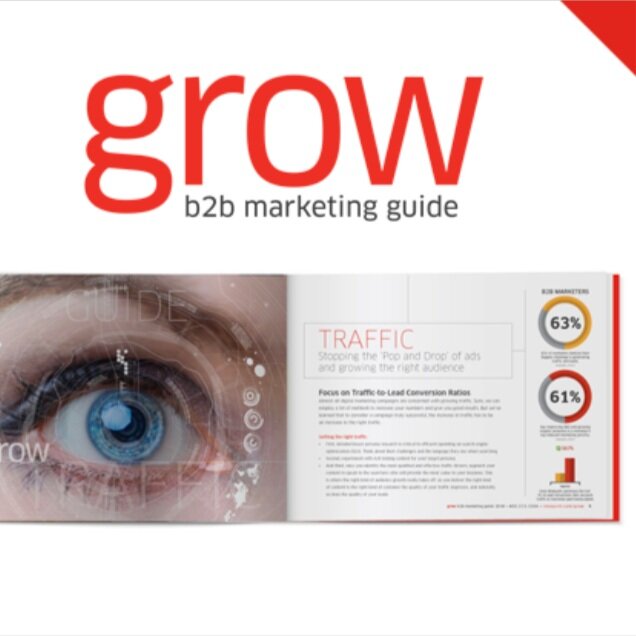What marketing KPIs matter most in B2B technology? Are you tracking metrics that truly define business success? Let's face it: in marketing, if you can't show evidence that something is working to directly achieve goals, it's impossible to generate C-suite buy-in. That's exactly what each B2B marketing KPI should do.
Here are the four KPIs every B2B technology company should track and how to establish realistic benchmarks for each.
4 B2B Technology Marketing KPIs You Should Track
1. Organic Traffic
This represents the number of people visiting your website from all direct and organic sources, primarily organic social and search. It excludes paid traffic like affiliate links, AdWords, or Facebook ads.
Why It's Important
How does a high number here directly correlate to the meeting of business goals? Organic traffic demonstrates high visibility among your target audience without directly having to pay for every visit, so it directly impacts customer acquisition costs.
This visibility not only directly increases traffic but also credibility because familiarity generates affinity, which will be critical for the next KPI.
How to Impact It
Focus on creating high-value content your audience is looking for online.
2. Leads
Traffic alone won't get the job done. You need an effective means to convert traffic. When it comes to leads, you must measure the quality of leads. When these contacts align with your ideal persona, they move through your sales funnel faster, often spend more, and are likely to be very happy with your B2B technology, so you can retain that customer.
Why It's Important
Generating a lead serves the purpose of reducing the noise and allowing you to create a more personalized experience.
How to Impact It
You must have a clearly defined sales funnel. We recommend you use high-value content aligned with the Buyer's Journey to guide leads through the funnel and turn them into sales qualified leads for sales.
3. Revenue
How many of your "sales qualified leads" actually become customers? If that rate is low, work with sales leadership to establish what a sales qualified lead actually looks like and agree upon a lead grading system.
How to Impact It
During a recent webinar we co-hosted on KPIs for Global IT, Chad Mattix of the B2B technology company, Kinettix, noted that 40% of their revenues come from inbound marketing. Relequint has helped them implement martech and inbound marketing strategies to achieve this.
4. ROI/ MROI
What is the relationship between your marketing budget and revenues? This is Marketing ROI (MROI).
First of all, you should have a positive ROI from the start. It's important to think long-term, but you need to see some ROI now to know your B2B marketing strategies are working.
Establishing Benchmarks for Your KPI
So how much traffic should your website be getting organic versus paid? Are you generating enough leads to justify your B2B marketing budget?
You need to know where to go and what's possible. This requires benchmarks.
Start by ensuring you have the B2B technology you need to track performance related to these four KPIs.
Leveraging martech like HubSpot to measure historical data allows you to set the most realistic and specific marketing KPI as well as see how you're performing.
Use other martech SEO tools to understand:
- How much organic traffic do your competitors get
- Where their traffic comes from
- How it arrives (a lot of it will be organic)
- Pages people visit and how they interact with the site
This helps you refine your own website traffic related marketing KPI.
Martech can also help you gather historical data on lead generation metrics like:
- Conversion rate
- Click-through rate
- Cost per lead
- Number of leads generated
- Lifetime value
- MQL to SQL ratio
Match this with your activity to see how you're influencing these metrics. Set realistic lead generation marketing KPI. Be sure to establish the direct connection between each KPI and business success. If that connection isn't clear, re-evaluate your KPIs.
The right KPI will point a direct arrow to business success. Understanding what to track and how to set realistic goals for your KPIs lets you know you're on track and can direct your marketing budget to cut costs and achieve the highest ROI.







 By
By 
